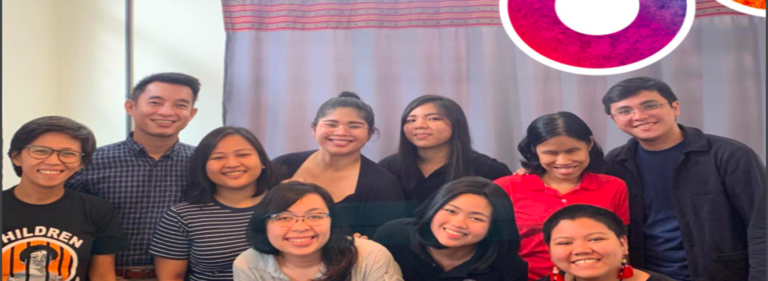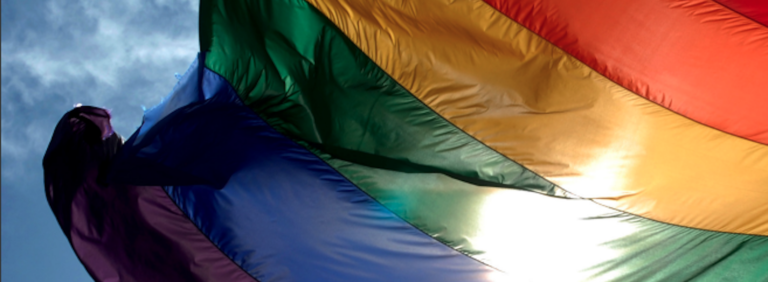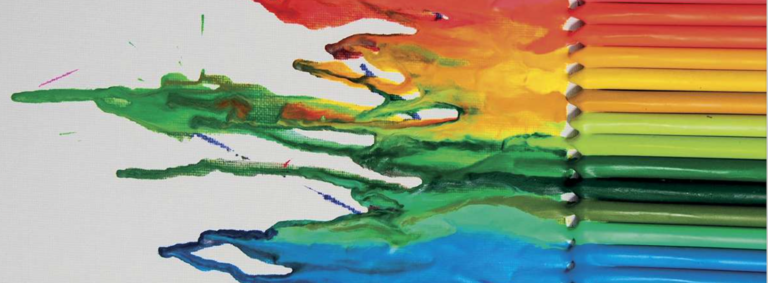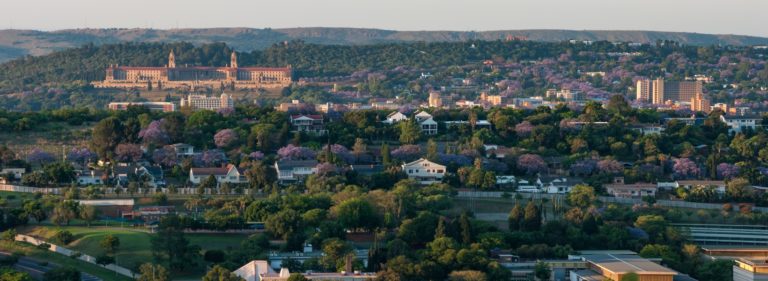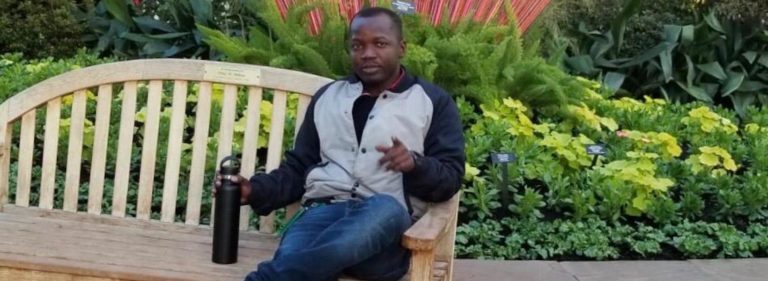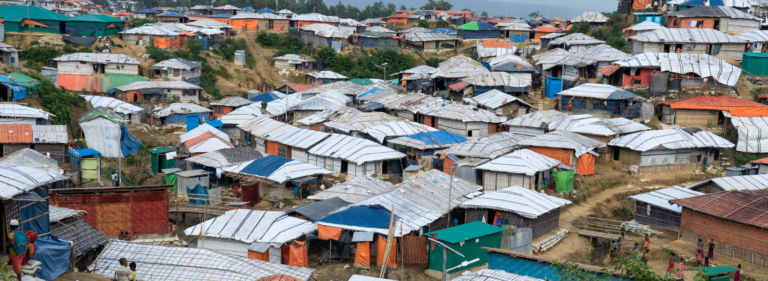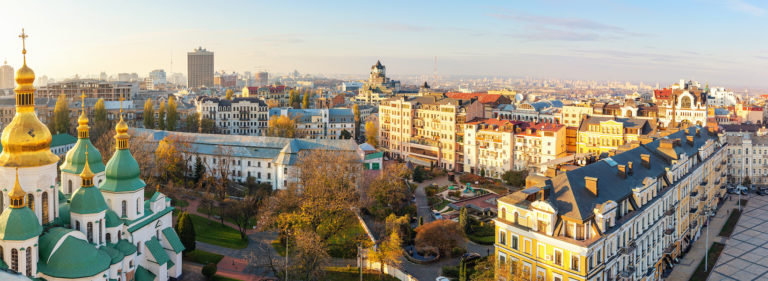Emma Yaaka (he/him) is an LGBTIQ+ advocate who has worked to provide medical services and information to LGBTIQ+ refugees in Kenya and the US. In 2015 Emma began working for RefugeePoint as their Ugandan Liaison for the LGBTIQ+ community. Emma has used his training as a nurse to advocate for health services for refugees with a variety of organisations in Kenya and in the US. In the US, Emma works for the Heartland Alliance Refugee and Immigrant Community Services. Emma also recently started a YouTube channel to help the LGBTIQ+ refugee community access relevant health information.
How did you become an LGBTIQ+ activist?
I became an LGBTIQ+ activist through being a part of the community. I went through some difficult experiences, as I was mistreated and discriminated against for being part of the LGBTIQ+ community. This made me become stronger. I gained the opportunity to become an LGBTIQ+ leader through working and volunteering with friendly and welcoming organisations that empowered me with training and support to stand up for others.
In 2015, Refugepoint was looking for an Ugandan Liaison for the LGBTIQ+ community who had a medical background and could serve as an interpreter and advocate. I was chosen because of my Nursing/EMT background, fluency in Ugandan languages, and my leadership qualities. I advocated for equal access to medical services for urban LGBTIQ+ refugees in 30 different areas in Nairobi, Kenya and its outskirts. I mobilised LGBTIQ+ health training. I was placed in government hospitals to help refugees to access medical services and I supplied/delivered free medications to refugees who could not afford to purchase prescriptions. I also advocated for resources and funding for reliable work like starting up businesses, I supplied condoms and lubricant for safe sex, I accompanied refugees to hospitals to ensure that they receive adequate services, I identified very vulnerable LGBTIQ+ individuals living with disabilities and mental health challenges and referred them for additional support, I made referrals for housing assistance to LGBTIQ+-friendly agencies, I contacted mental health services in partnership with other organizations providing services to LGBTIQ+ individuals, and I partnered with local legal human rights agencies such as RCK (Kitua cha sharia) and KAPLET to release LGBTIQ+ individuals who were criminalized for their identity to be released from jail, given their rights, and represented in court.
What inspires you to advocate for social change?
LGBTIQ+ people are human beings, and we deserve human rights just like everyone else. LGBTIQ+ people are often misunderstood, mistreated, and that puts us in a very vulnerable position. We need a voice. Most of the time our voices are not heard. Our rights are violated in terms of social services of accessing adequate education, health, social life, legal support, and housing. All these needs inspire me. The pain I have experienced inspires me to stand, fight, advocate and encourage service providers to change and understand Queer communities.
What have some of your experiences been working with the queer refugee community?
Positive experiences:
- Seeing people succeed in their goals of becoming self-sufficient
- Saving people from unsafe environments and threats.
- Personally, gaining experience and understanding a lot about the unique needs of LGBTIQ+ community
- Standing in the position of connecting LGBTIQ+ people to different community projects and to available resources, encouraging and supporting them to fulfil their goals.
- Personally, I gained experience of being trusted from different agencies, and my voice was recognized and made an impact of moving towards acceptance.
- LGBTIQ+ people trusting me as their community leader up until today; I am still serving and supporting LGBTIQ+ people with my small amount of resources, including money, food, rent.
Negative experiences:
- Personally, not being adequately supported by the stakeholders of LGBTIQ+ organizations to learn more about the needs based on my experience.
- I sometimes get denied services because of the work I do. I get judged by organizations and people because of my work with LGBTIQ+ people. This puts me in a position of fear for my personal safety.
- I observed LGBTIQ+ people being denied resettlement because of language barriers, lack of confidence, and ability to express their story in a particular way, that lead to them being denied resettlement and even integration. Their only choice is to go back to the unsafe country of origin. UNHCR lacks an appeal process; once they deny you, you fail permanently.
- As a medical professional, it was difficult to witness the high rate of HIV and other serious medical problems (TB, Hepatitis B) because there are no proper sexual education programs. There are high rates of cases, especially in black males, which go unreported.
- Because of a lack of resources, LGBTIQ+ individuals are forced to create their own CBOs (Community based organizations) and focus groups, and it’s difficult to access appropriate funding.
How long have you been involved in this work?
I have been involved in LGBTIQ+ advocacy for about 5 years
What are some of the challenges you have faced working with or advocating for the queer refugee community, or other LGBTIQ+ groups?
Language is a big barrier because I work with refugees from all over, and I don’t always share a language with them. In Nairobi there were language barriers with LGBTIQ+ people from Yemen, Ethiopia, Somalia, Sudan, Afghanistan, non-Swahili speaking Tanzanians and Congolese. Here in America, people are mostly resettled from Central African Republic and Togo.
A huge challenge in Nairobi was transportation. It was difficult to reach the areas where most LGBTIQ+ people lived because they lived in the outskirts of the city for safety reasons. In both Nairobi and here in the U.S, I deal with stigma and with prejudice against LGBTIQ+ people and those who work with/advocate for them.
In Kenya, there were very poor medical and legal services specifically for LGBTIQ+ people because all of the providers were non- LGBTIQ+ and they used to preach their beliefs to LGBTIQ+ people. This limited most LGBTIQ+ people from seeking medical services. There were very limited resources (financial assistance and funding) to support LGBTIQ+ people with education, better medical services, jobs and businesses to work towards self-sufficiency. The lack of security/safety led to detentions, threats, evictions, rape and blackmail in the LGBTIQ+ communities.
The US, my third country of resettlement, has drastically reduced the number of refugees allowed to resettle here. The resources are also very limited in providing proper care, services and basic needs before individuals can become self-sufficient. In Kenya, because the US government reduced settlement slots and funding to support LGBTIQ+ people financially, there is a delay in the resettlement process. This is increasing rates of mental health challenges including suicide, HIV-AIDS (because LGBTIQ+ refugees are resorting to sex work due to a lack of resources for survival), and many people are resorting to returning to their unsafe countries of origin just to survive. This is exacerbated during this time of COVID-19 outbreak and once people resort back to their original countries, they have no home. They sometimes end up being killed, arrested, mistreated or tortured.
Here in the US (and in Kenya too), locals are not always welcoming of LGBTIQ+ individuals. They face discrimination, insults, assaults, and denial of services. Resettlement is a very long process. Approval to get to a third country of resettlement can take many years. Refugees generally remain in the camp for 3-6 years without adequate support. In Nairobi the camps are homophobic.
Does a specific project come to mind that you’d like to share, where you were working for the inclusion of LGBTIQ+ people in a humanitarian or development context? If so, what was the project? What happened?
I opened a YouTube channel as a platform to help both LGBTIQ+ people and non- LGBTIQ+ refugee communities to break down information into understandable pieces with reliable accent and language interpretation here in the US, Chicago, IL. I provide information that I feel is beneficial to the refugee communities, and I am planning to bring talented LGBTIQ+ people on the platform to share their stories, talents, and seek resources to promote their talents. The Chicago Reader wrote an article about my YouTube channel. I am currently streaming out of my bedroom using my phone with borrowed cameras while going outside for some interviews. I am saving some money for cameras.
If there was one change that you would like to see for the queer refugee community, and/or the inclusion of other LGBTQI+ people what would that change be?
We need health experts to be trained to understand LGBTIQ+ people so that they can receive equal services.
Young LGBTIQ+ people who have not been able to complete their education because of discrimination back in their countries should be given the opportunity to finish their education in a safe environment, and to accomplish their life goals so that they can be tomorrow’s professionals who can lead in the fight for LGBTIQ+ rights.
Trans individuals in trans/homophobic countries are at the highest risk of assault, threats, and discrimination. They need protection through resettlement or integration in safe and welcoming places.
The public needs training and information about the LGBTIQ+ community. Activists need to be heard and recognized, and appropriate legal action must be taken for mistreatment.
In what ways do you believe humanitarian and development organisations can support the inclusion of the queer refugee community and/or other LGBTQI+ people?
Organisations need to have specific programs within their agencies to serve LGBTIQ+ communities, and there needs to be peer-reviewed or on-the-ground evaluations to prevent the misuse of funds. It’s important that these programs have people from the community, or who are sincere allies, as part of the staff and oversight. Even resettlement agencies need to have specified treatment and programs to serve LGBTIQ+ people because they have specific needs. For example, Trans individuals and/or HIV + individuals require additional time and treatment to properly adjust in a medical and psychological sense before they are expected to be completely self-sufficient. Also, developmental organisations should support and work with existing local LGBTQI+ CBOs, groups and experienced individuals like activists/advocates, and government.





